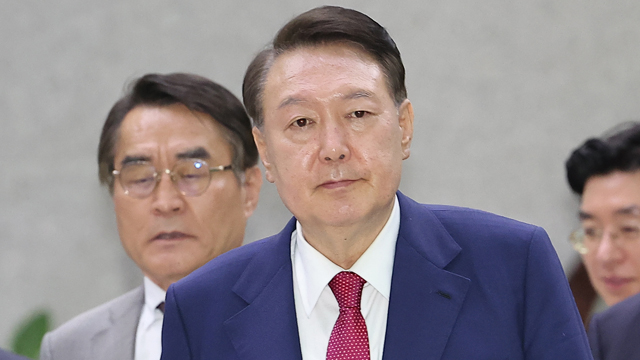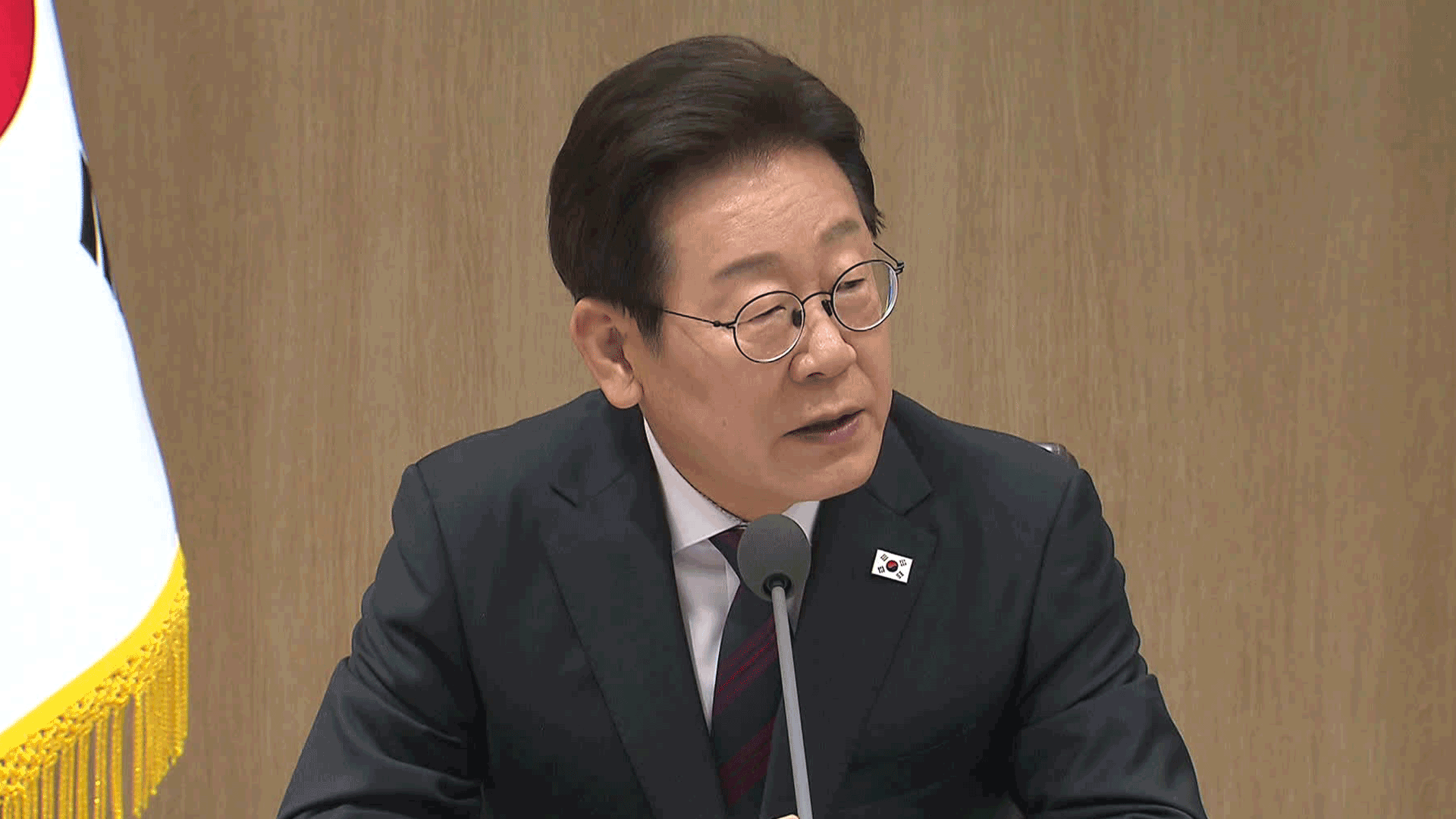[News Today] TRUMP EYES DEFENSE COST HIKE
입력 2024.11.07 (16:30)
수정 2024.11.07 (16:31)
읽어주기 기능은 크롬기반의
브라우저에서만 사용하실 수 있습니다.
[LEAD]
What does Donald Trump's return as president mean to South Korea? We first have to address some of the financial obligations. In his first term, he threatened to pull U.S. troops stationed in Korea unless Korea increased its defense spending. This raises concerns that he might escalate demands for higher defense contributions from South Korea.
[REPORT]
Former U.S. President Donald Trump announced in 2020 that one-third of the U.S. soldiers stationed in Germany will be withdrawn.
He said that Germany didn't pay its share of the defense cost and threatened to reduce the number of U.S. troops until Germany pays up.
Donald Trump/ Former U.S. President (Jun. 2020)
So we're removing the, putting the number down to 25,000 soldiers.
The U.S. President also put similar pressure on South Korea.
In 2020, South Korea paid its share of the annual defense cost amounting to over 900 million U.S. dollars.
At the time, Trump demanded that South Korea contribute up to five billion dollars annually.
More recently, he called for twice that amount which is why it's speculated that the renegotiation of a defense cost agreement signed with the Biden administration last month is inevitable.
Donald Trump/ Former U.S. President (Oct. 15)
If I were there now, they'd be paying us 10 billion dollars a year. And they'd be happy to do it. It's a money machine.
Trump had mentioned to his advisors several times during his term that South Korea is not paying enough and the removal of U.S. forces in Korea should be considered.
If renegotiation does take place, he is likely to use the downsizing of U.S. forces in Korea again to pressure the country.
Prof. Min Jeong-hun/ Korea Nat'l Diplomatic Academy
Discord is possible because Trump could add more economic burden on S. Korea in deploying strategic assets on the Peninsula or running joint drills.
Since U.S. Congress can prevent the reduction of USFK, the Korean government said that it has been working to gain bipartisan support for the Seoul-Washington alliance.
■ 제보하기
▷ 카카오톡 : 'KBS제보' 검색, 채널 추가
▷ 전화 : 02-781-1234, 4444
▷ 이메일 : kbs1234@kbs.co.kr
▷ 유튜브, 네이버, 카카오에서도 KBS뉴스를 구독해주세요!
- [News Today] TRUMP EYES DEFENSE COST HIKE
-
- 입력 2024-11-07 16:30:22
- 수정2024-11-07 16:31:55
[LEAD]
What does Donald Trump's return as president mean to South Korea? We first have to address some of the financial obligations. In his first term, he threatened to pull U.S. troops stationed in Korea unless Korea increased its defense spending. This raises concerns that he might escalate demands for higher defense contributions from South Korea.
[REPORT]
Former U.S. President Donald Trump announced in 2020 that one-third of the U.S. soldiers stationed in Germany will be withdrawn.
He said that Germany didn't pay its share of the defense cost and threatened to reduce the number of U.S. troops until Germany pays up.
Donald Trump/ Former U.S. President (Jun. 2020)
So we're removing the, putting the number down to 25,000 soldiers.
The U.S. President also put similar pressure on South Korea.
In 2020, South Korea paid its share of the annual defense cost amounting to over 900 million U.S. dollars.
At the time, Trump demanded that South Korea contribute up to five billion dollars annually.
More recently, he called for twice that amount which is why it's speculated that the renegotiation of a defense cost agreement signed with the Biden administration last month is inevitable.
Donald Trump/ Former U.S. President (Oct. 15)
If I were there now, they'd be paying us 10 billion dollars a year. And they'd be happy to do it. It's a money machine.
Trump had mentioned to his advisors several times during his term that South Korea is not paying enough and the removal of U.S. forces in Korea should be considered.
If renegotiation does take place, he is likely to use the downsizing of U.S. forces in Korea again to pressure the country.
Prof. Min Jeong-hun/ Korea Nat'l Diplomatic Academy
Discord is possible because Trump could add more economic burden on S. Korea in deploying strategic assets on the Peninsula or running joint drills.
Since U.S. Congress can prevent the reduction of USFK, the Korean government said that it has been working to gain bipartisan support for the Seoul-Washington alliance.
이 기사가 좋으셨다면
-
좋아요
0
-
응원해요
0
-
후속 원해요
0















이 기사에 대한 의견을 남겨주세요.